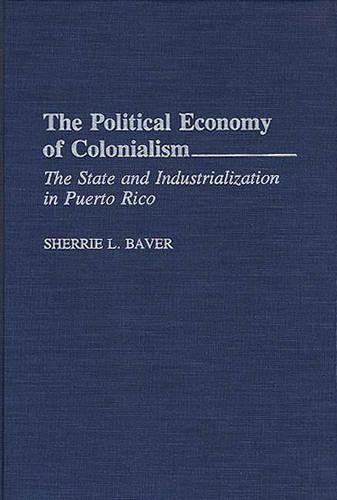
The Political Economy of Colonialism: The State and Industrialization in Puerto Rico
(Hardback)
Publishing Details
The Political Economy of Colonialism: The State and Industrialization in Puerto Rico
By (Author) Sherrie L. Baver
Bloomsbury Publishing PLC
Praeger Publishers Inc
30th July 1993
United States
Classifications
Tertiary Education
Non Fiction
Industry and industrial studies
Colonialism and imperialism
National liberation and independence
Economics
338.097295
Physical Properties
Hardback
176
Description
This study examines how Puerto Rico's industrial development process has shaped and been shaped by the state, relations with Washington, and Puerto Rican society, especially in light of the economic crises of the 1970s and 1980s. Sherrie Baver posits that Puerto Rico's extreme integration into the U.S. political economy was an unintended consequence of the development model, and that its result has been a state whose tasks, such as securing an environment for private capital accumulation and income redistribution, have become increasingly regulated by the federal government, challenging Puerto Rico's commonwealth status. Recommended for scholars of Latin American Politics and Third World Development.
Reviews
The main message of this excellent volume is found in Baver's observation that "the ambiguity of commonwealth status offered no guiding sense of nationhood for Bootstrap planners..." Anyone who wants to understand how that occurred should read Baver's study.-Journal of Third World Studies
"The main message of this excellent volume is found in Baver's observation that "the ambiguity of commonwealth status offered no guiding sense of nationhood for Bootstrap planners..." Anyone who wants to understand how that occurred should read Baver's study."-Journal of Third World Studies
Author Bio
SHERRIE L. BAVER is Assistant Professor and Chair of the Department of Latin American and Caribbean Studies at the City College, City University of New York. She has published several articles on Puerto Rican studies.
